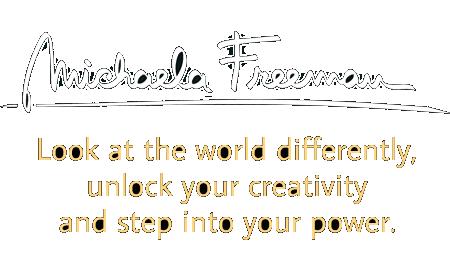Public speaking and PR are the by-products of my creative career. My clients and projects occasionally require me as a spokesperson, where I do radio and TV interviews, presentations or lectures, write press releases and articles. I have become a lecturer, press secretary or spokesperson because someone said “you are used to it,” meaning “then we don’t have to.” Having grown up around journalists and film-makers, I am indeed used to it.
Public Speaking and PR (Dis)comfort Zone
With the increasing frequency of public appearances and requests, I became comfortable delivering motivational speeches, lectures on creativity or teaching animal-assisted therapy to medical professionals. I love the power of spreading information and chose to overcome my personal discomforts doing it. I particularly love to talk with an audience afterwards and get to know their stories. For me, communication has always been more conversation than lecture.
Motivational Speaking Is a Misnomer
I like doing what’s called motivational speaking, but I strongly feel that this label highly incorrect. I’m not the only one. Tony Robbins, a business coach and one of the truly world-renowned motivational speakers, adamantly refuses to call it that. Motivation can’t be taken in an injection. Motivation comes from within, as a by-product (or perhaps the natural outcome) of aligning your internal settings. And once your settings are in sync, then you don’t need any motivation, you are jumping out of bed eager to do things. You will do them tirelessly and the only problem comes when you are told do something else, like sleeping or eating. All external motivation, including money, rewards, promotions or even awards eventually wears off or outright fails. What works long term is the ability to believe in what we do, receiving heartfelt appreciation and praise and seeing the purpose.
Yet, team leaders continue thinking that a motivational speech will somehow magically wake up their employees or students from the inertia they put them into and everyone will become vibrant, creative and energized. In reality, the best we can hope for is a shift – a fundamental shift that leaves people thinking, that forces them to re-evaluate their situation… and find better alignment within it. Tony Robbins says that he’s merely asking the right questions. If the initial impulse of the speech isn’t followed by appropriate action, by changes to the status quo, it’s a waste of everyone’s time. But if there is the will to change, then there is space for miracles. I love contributing to creating that space and watching the miracles happen.
Hearing the Stories
It’s interesting to find that, no matter whether it’s an article, a local radio interview or a public lecture, there is always one piece of feedback that attracts my attention. Perhaps someone calls, writes, or comes to me afterward and says that what I described is exactly their story, issue, fear or hope. I speak generalities and they hear specifics. And often their story is something worthy of a TED talk.
A college student from Africa told me how much my speech meant to him because he felt alone with his thoughts among his purely materialistic peers. Instinctively open to opportunities, he was an active businessman with several ventures underway. Having survived our typical immigrant experience, working jobs that paid half the minimum wage, he also spent several years in prison, falsely accused and badly represented. He survived the ordeal thanks to a school director who believed his innocence and sent him care packages and books. At the time we met, he was in his mid-twenties, paying his way through college and taking care of his young son. He seemed amazingly content and poised among his peers who simply wanted to party before settling down.
Stories like his inspire me. Finding myself able to connect with someone this deeply, to give them hope and courage or even to simply explain something that’s been bugging them for a long time, is very powerful. Those moments are what make my work a leap of faith.
